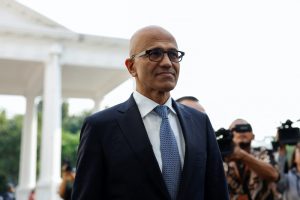Top South Korean opposition leader’s first thought when he saw President Yoon Suk Yeol’s late night address declaring martial law was that it was a deepfake, he told CNN in an interview this week.
“That night, after I got off work, I was lying in bed with my wife in our home … when my wife suddenly showed me a YouTube video and said, ‘The president is declaring martial law,’” Lee Jae-myung, leader of Korea’s main opposition Democratic Party (DP), told CNN.
“I replied, ‘That’s a deepfake. It has to be a deepfake. There’s no way that’s real,’” he said.
“But when I watched the video, the president was indeed declaring martial law – yet I thought to myself, ‘This is fabricated, it’s fake.’”
Yoon’s sudden martial law announcement late Tuesday night sent shockwaves across the world, and led the South Korean currency, the won, and equities to tumble on Wednesday. South Korean lawmakers are now pushing for the president’s impeachment, and experts say the country may face prolonged political upheaval in the months ahead.
But Lee’s reaction to the announcement speaks to not only the shock of that announcement but also, the increasing proliferation of artificial intelligence (AI) and deepfakes into daily lives that is making it harder for people to identify reality from AI-generated content.
- Vishakha Saxena
Also read:
‘Deepfake’ of Ukrainian Official Targets Top US Senator: NYT
Video Call With Deepfakes Costs UK Firm $25m in Hong Kong
Deepfake of Asia’s Richest Man Used in India Stock Market Scam
Deepfake of Dead Indonesian Leader Used in Vote Appeal – CNN
$600,000 ‘Deepfake’ Fraud Heats Up AI Debate in China
AI Chiefs Say Deepfakes a Threat to World, Call For Regulation
Western Spy Chiefs Warn China Using AI to Steal Tech Secrets
UK Study Found AI Models’ Responses Collapsed Into Nonsense
























